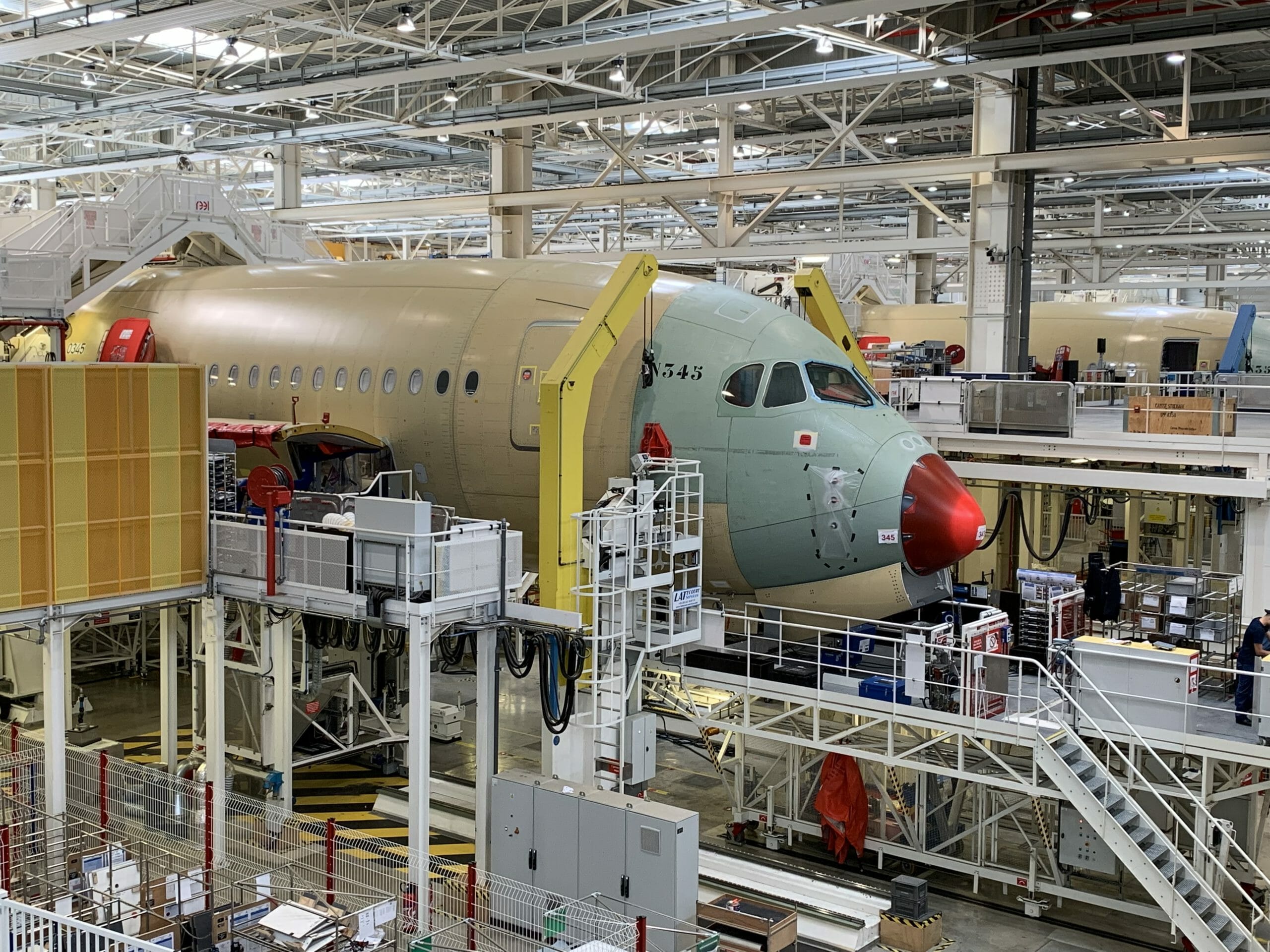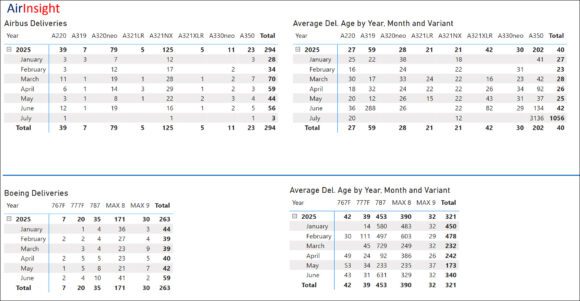
AirbusA350 scaled
Airbus is to slash 15.000 positions before mid-2021 as it adapts to revised market conditions. The European airframer said on June 30 it needs to resize following a forty percent reduction in production after Covid-19. The announcement was expected only later in July.
Jobs will be lost in all countries Airbus is active. In Germany, 5.100 positions will go, including those at tier 1-supplier Premium AEROTEC. They do not include the 900 positions that were already planned to be reduced at Premium.
In France, 5.000 positions are cut, including those at supplier Stelia. Airbus UK will cut 1.700 jobs, Airbus Spain 900. Elsewhere, 1.300 workers will have to go, but Airbus hasn’t specified numbers for its sites in Mobile (Alabama), Montreal, and Tianjin. Some 2.900 jobs are expected to be cut at Defence and Space later this year.
Forced reductions not ruled out
Airbus will negotiate with unions and workforce representatives and hopes to conclude agreements before this autumn. Forced reductions are not ruled out, although it seeks voluntary departure, early retirement, or long-term partial unemployment schemes. Unions in France have made it clear that voluntary reductions will be unacceptable, especially after Airbus received EUR 7 billion in state aid to cope with the Covid crisis.
“Airbus is facing the gravest crisis this industry has ever experienced,” CEO Guillaume Faury said in a statement. “The measures we have taken so far have enabled us to absorb the initial shock of this global pandemic. Now, we must ensure that we can sustain our enterprise and emerge from the crisis as a healthy, global aerospace leader, adjusting to the overwhelming challenges of our customers. To confront that reality, we must now adopt more far-reaching measures.”
Production cut of 40 percent inevitable
Faury gave a warning shot about what Airbus was about to expect in an interview with German newspaper Die Welt on June 29. He said a forty percent reduction in production was inevitable. Already during its Q1 earnings call on April 29, he said that Airbus is working on a short- and medium-term program that includes the impact of the corona crisis. Production of the A320neo-family has been reduced by thirty percent from 60/63 originally planned for July to forty aircraft per month. A330/A330neo rates are down from six to two, A350 rates from ten to six, with A220 rates to remain flat at four per month.
In Die Welt, Faury explains that the 30 percent reduction announced in April was relative to 2019 levels, but a forty percent reduction compares to the original planning for 2020 and 2021.
This April and May, deliveries were down even eighty percent as Airbus struggled to hand over produced airliners to their customers. Only 14 out of 75 aircraft were delivered in April. This situation will improve from July onwards but depends on a number of factors, including the financial situation of airlines and travel restrictions of crew.
Airbus has been confronted by a huge demand for delivery deferrals by almost all airlines, even of aircraft that are ready to go. Qatar Airways CEO Akbar Al Baker recently indicated his airline will take no deliveries this year and the next. This includes A350-1000s that are parked at the delivery center in Toulouse.
Back to 2005-2010 levels
Faury told Die Welt he expects demand for the A320neo’s to pick up again in 2022/2023, but demand for widebodies will be sluggish for the next five years. He still expects a surge in demand for replacement of older A330s and Boeing 777s, “but this is some years away.” A reduction of forty percent will throw Airbus back to levels it used to have between 2005-2010.
As Airbus is to slash 15.000 jobs, it is in talks with governments, management, unions, and workforce representatives about how to save as many jobs as possible, but Faury made it clear that options available to reduce the impact will not be enough. “Again: overnight, we have lost forty percent of our commercial aircraft business. That’s a brutal fact but we have to cope with that. We have to adjust capacity to the revised production rates in order to safeguard our future”, he told Die Welt. For this, “no stone will remain unturned” as Airbus scans all production facilities worldwide for potential cost reductions. Closing of production lines is not foreseen, guarantees Faury.
The state aid from France, Germany, Spain, and the UK helps Airbus to continue the development of newer, cleaner, and quieter technology for future generations of airliners. Faury said Airbus will invest in smaller demonstrator programs that should allow it to decide by 2025 what is the way to go on new airliners. He expects the first model to benefit from this is a short-haul aircraft type but not a successor to the entire A320-family as this model spans different market segments.
Views: 1



